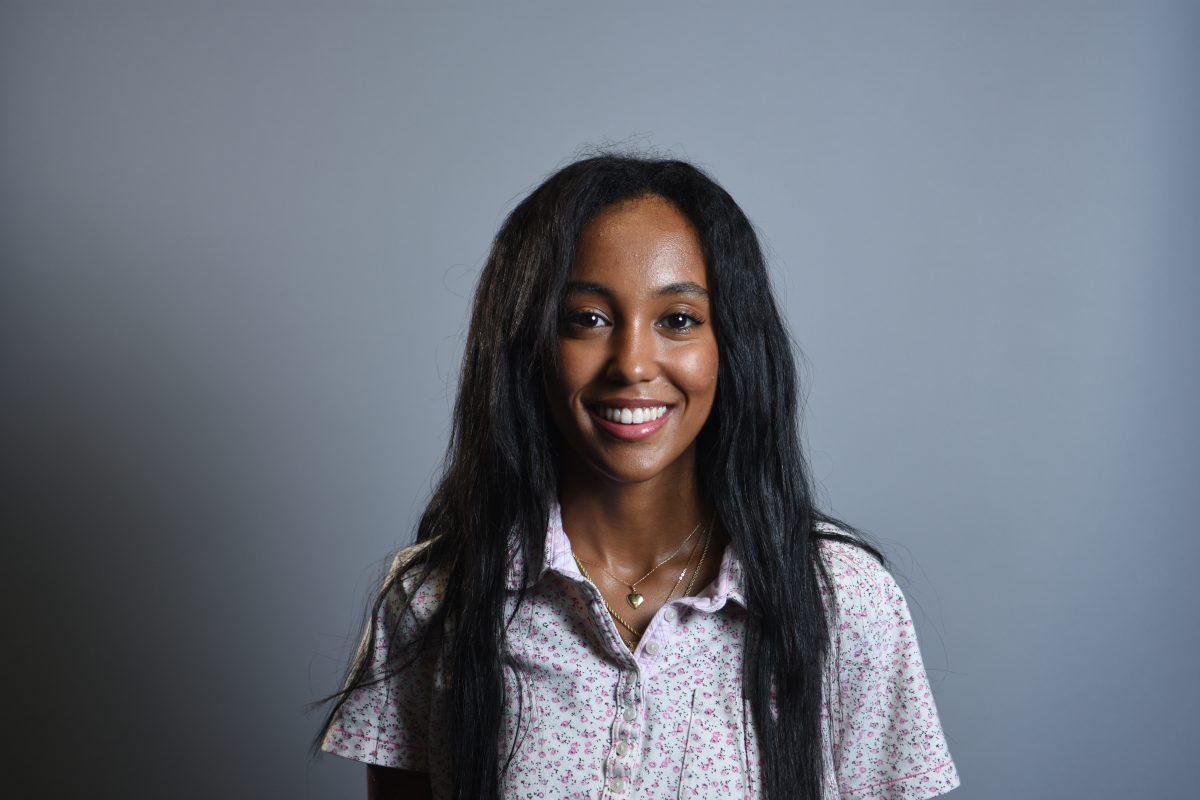
Rocky Berhe headshot
Gen Z has the ballroom drag scene to thank for the endless one-liners circulating the internet. Perfect for praise in your friends’ Instagram comments or snide remarks to signal you have both humor and culture, we predict “gagged” will be the next term co-opted by the alternative white liberal crowd.
Around the time of the Harlem Renaissance, queer and trans people of color began forming a language to fly undetected by the disapproving mass. Subtle language like the famous “friend of Dorothy” meant nothing to the cisgender and heterosexual people around them. The larger white queer community took this language and added it to their own. Slowly, this language has become what many Zoomers use to communicate.
I’m sure you’ve seen the videos of 30-year-old artists deemed “mothers” by crowds of their 24-year-old fans. Or perhaps you’ve been graced with the sounds of Meghan Trainor’s circus harmonies.
The term “mother” comes from a very real place. The LaBeija Sisters, Crystal and Lottie, were founding “mothers” of the House of LaBeija in late 1960s New York. This was an effort to establish a home for drag that was free from the overt racism of the ballroom scene at the time.
Featured in the 1968 documentary “The Queen” was the moment that inspired the creation of the “House of LaBeija.” Unsurprisingly, Crystal did not win, as was the standard with an all-white panel of judges. Someone tells her, “Crystal, darling, you’re showing your color,” and she responds with, “I have the right to show my color.”
In 1968, the House of LaBeija was formed, followed throughout the 70s by other New York drag artists, also known as house mothers or fathers. The House of Dupree, House of Wong and House of Corey were staples of the scene in the 70s. You can thank Paris Dupree for Madonna’s career.
It was 1989, at a bar between Gramercy and the East Village, where some Black drag queens were on the floor “throwing shade,” another phrase gracefully bestowed to us by Miss Dupree. Paris Dupree fetched a copy of Vogue out of her bag, turned a page and matched the pose on the beat. Boom, turn a page, turn a pose.
The House of Xtravaganza was the first Latino house. Father, Jose Xtravaganza joined when he came out in the mid-80s. Voguing was where he found a means of self-expression as a classically trained dancer, and also where he found community amongst the supermodels he would “ki-ki” with on his nights out.
As is usually the case with mainstream culture, everybody goes where the models go. It wasn’t long before the who’s who of New York celebrities were turning up at drag balls.
Culture is very cyclical. “Grandfather of Vogue” Willi Ninja took inspiration from Fred Astaire, and the pop-dip ballroom movement grew alongside the development of hip-hop in the Bronx and Harlem. There’s no point in asking people not to use ballroom slang when most of the internet comedians they follow are queer.
The history of how these trends came from marginalized communities is, of course, forgotten. As things come in and out of fashion, their roots and meanings get lost. People attribute words like slay and queen to drag, unaware of the ballroom culture of queer and trans people of color.
It’s not about preserving sects of culture, so they should never mix or bleed into one another. It’s inevitable and instrumental to the development of alternative culture that the subculture is absorbed by the monoculture. However, the position of the “culture vulture” generation is not one that we should take in jest.
This isn’t intended to guilt you for prioritizing your personal life over cultural criticism. Queer and Black voices are actively and purposefully suppressed so that they are overlooked. The point is for you to deprioritize humanity over profit, and where Black LGBTQ+ voices are most profitable for corporations is in their contributions to culture.
There isn’t anything wrong with using words and cultures made by other communities, so long as you respect them. You cannot say slay while turning a blind eye to the horrific state of LGBTQ+ rights.
It is vital that people who participate in queer culture to make themselves sound cool also recognize how important supporting queer communities is.
Anyone who wants to say, “yass, queen” should be right there with the LGBTQ+ community demanding proper treatment, both at the state and federal level. It is time people recognize the roots of their so-called hip language.
Trans models are the it girls in fashion and on our screens, but would they feel safe on our campus?